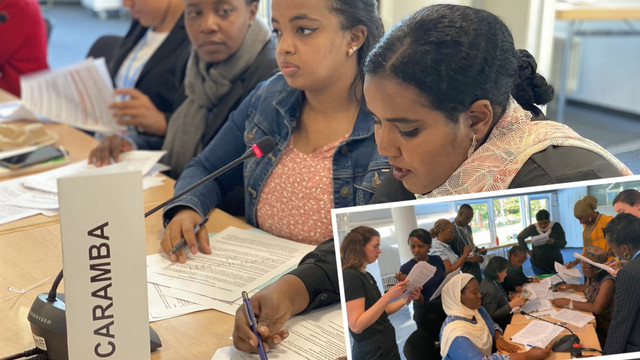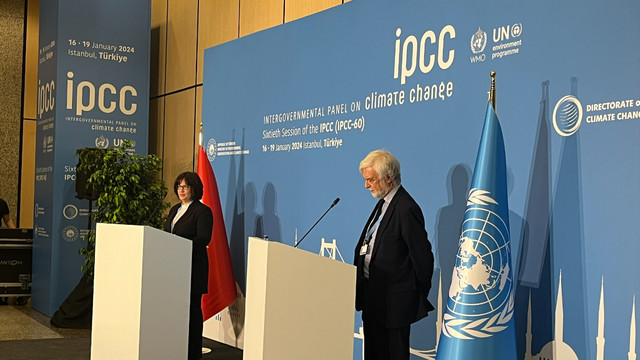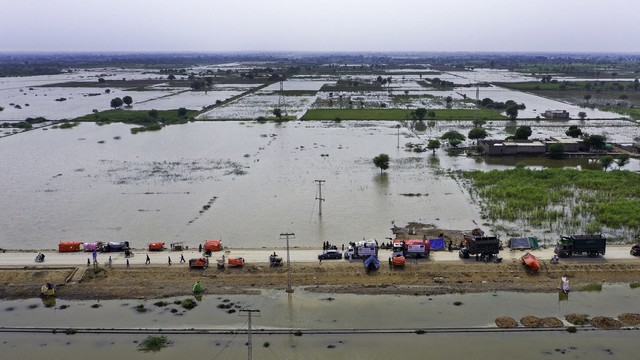Saleem selected for UN climate summit
IIED senior fellow Saleemul Huq has been chosen as one of 38 civil society representatives to attend the UN Secretary General's climate summit this month.

IIED senior fellow will speak at the UN Secretary General's climate summit in September (Photo: Mike Goldwater/IIED)
Every year, climate change is in the spotlight during the Conference of the Parties (COP) organised by the United Nations Framework Convention on Climate Change (UNFCCC), where representatives from governments around the world get together to negotiate a multilateral climate deal.
But this year, climate change is getting extra attention, with the Climate Summit on 23 September hosted by UN Secretary-General Ban Ki-moon making a plea to leaders from government, business, and civil society to take positive action for tackling climate change.
The summit will focus on taking tangible steps towards tackling climate change. Its motto is "catalysing action", and Ban Ki-moon has invited world leaders from government, finance, business and civil society, asking them to bring ideas and actions to the summit for reducing emissions, strengthening climate resilience, and mobilising political will for a meaningful legal agreement in 2015.
Among them will be Huq, also the director of the International Center for Climate Change and Development (ICCCAD) as one of 38 civil society representatives selected to attend the event after an open competition. Farah Kabir, a member of the IIED-convened Least Developed Countries Independent Expert Group, has also been selected to attend.
Making sure the most vulnerable have a strong voice
Huq's hope for the event is that it will place global attention on climate change, which, he believes, has slipped off the radar.
"Our specific role will be to focus attention on the needs of most vulnerable to make sure Least Developed Countries have a strong common voice," he says. "The prevailing narrative from developed countries — and large developing countries — is: Don’t expect too much, these are hard times; it's difficult for us to mitigate. Their strategy is to manage and lower expectations.
"Our counter-narrative is, the cost of action might be high but it's nothing compared to the cost of inaction, which is hugely worse. Doing nothing will have repercussions for everyone – it might hit the most vulnerable first, but ultimately it will come back and hit everyone."
Getting the timing right
One of the failures of the Copenhagen climate summit in 2009, according to Huq, is that political leaders came in too late. Arriving at the last minute, they simply didn't have time to work out a deal.
The lesson: politicians need to enter the scene earlier and give direction to negotiators, who will then have plenty of time to hash out an agreement. This is why Ban Ki-moon has called for the summit – so that politicians can set goals in advance that will feed into this year's COP in Peru in December.
Taking to the streets
The summit is not the only big climate-focused event in September. Right before it, on 21 September, the streets of New York will see what's being touted as the "largest climate march in history".
More than 1,000 organisations will be there, along with people representing countries around the world (Huq plans to join the Bangladeshi community), with the aim of heightening world attention on climate change and putting pressure on leaders attending the summit to agree on positive actions for tackling the issue.
Can the summit help build a global movement for climate action?
This question is the topic for a live online debate taking place on 15 September, as a lead-up to the summit. IIED's Huq will share his views alongside a panel including Mary Robinson, former President of Ireland and the UN Secretary-General's Special Envoy for Climate Change.
Hosted by the Thomson Reuters foundation, the debate provides a great opportunity to discover what hopes experts have for the summit and what it can achieve. Interested parties are urged to contribute and pose questions to the panel, using the #climate2014 hashtag on Twitter.



